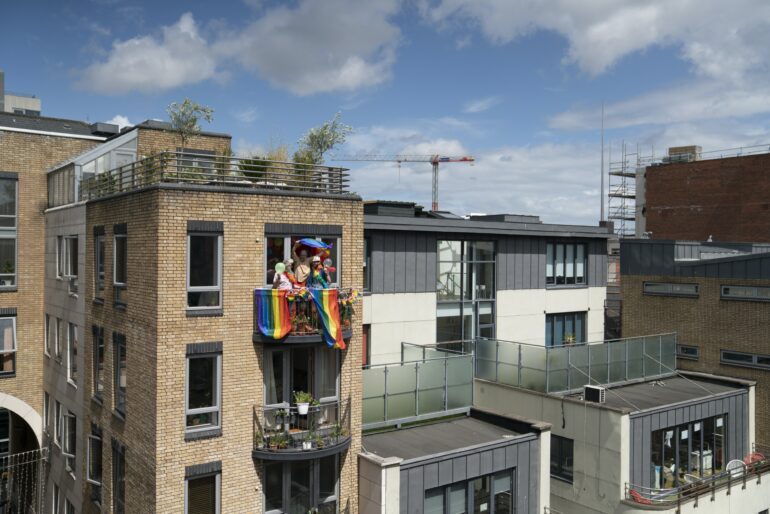Places are not just physical, but also social.
For instance, around the North Carolina campus where we met, we knew certain bars based on the students who frequented them — the “Duke bars” versus the “UNC bars.” Or, when traveling, we may try to guess whether most of the patrons at a restaurant are tourists – and if so, go elsewhere.
This common way of thinking about our environments seemed fairly reasonable to us until a few years ago, when we noticed something that gave us pause.
We’ve overheard one of our alma maters, the University of Pennsylvania, pejoratively referred to as “Jew-niversity of Pennsylvania,” and one of our hometowns, Decatur, Georgia, disparagingly called “Dyke-atur.” These labels are not only deeply offensive … they are also wrong. Neither of these places are actually majority Jewish or gay. And yet, some people seem to hold the belief that these groups dominate these spaces.
Where do these beliefs come from, and why do people make these inaccurate judgments? Perhaps more importantly, why might this matter?
As social psychologists who explore how intergroup dynamics affect organizational and consumer phenomena, we were fascinated by these questions. Four years ago, we set out to answer them.
Across six studies, we found that people commonly exaggerate the presence of certain groups – including ethnic and sexual minorities – simply because they are perceived as ideologically threatening. Psychologists call this feeling – that groups hold different values and worldviews from the mainstream, thereby jeopardizing the status quo – “symbolic threat.”
Symbolic threats loom large
We began by looking at survey data from the year 2000 that examined 987 non-Black Americans’ beliefs about Black people. We found that the more a survey respondent believed that Black people had different values or a separate lifestyle from their own, the more they believed the population of Black people would increase over time.
We followed this up with several experiments, looking not only at beliefs about Black people, but also other minority groups, including gay people and immigrants. We asked participants to imagine everyday social spaces, including patrons at a bar or residents in a neighborhood.

Imagining a company with some amount of Black workers, non-Black people seemed to jump easily from feeling threatened to feeling outnumbered.
AfricaImages/E+ via Getty Images
In some studies, we showed participants demographic information about a small portion of employees at a company and asked them to guess the demographics of the entire business. In other studies, we described a group of people congregating in a place and asked participants whether they believed the place was somehow linked with those people – for example, a “Duke bar” or “UNC bar.”
Our volunteers were much more likely to overestimate the groups they found symbolically threatening,…



